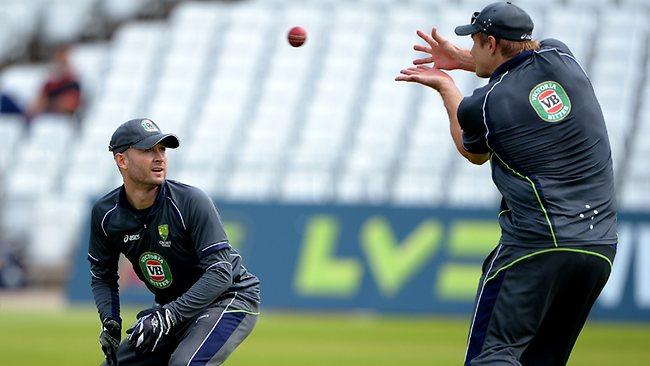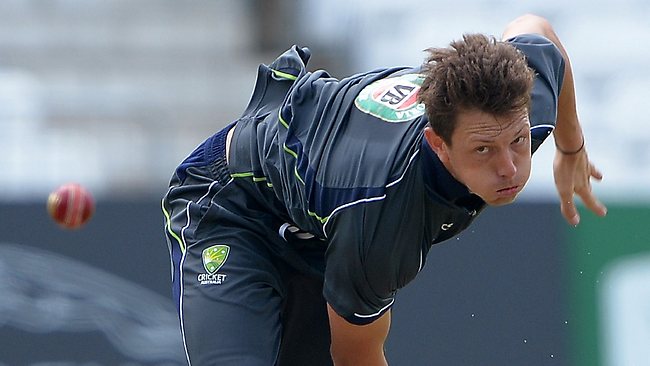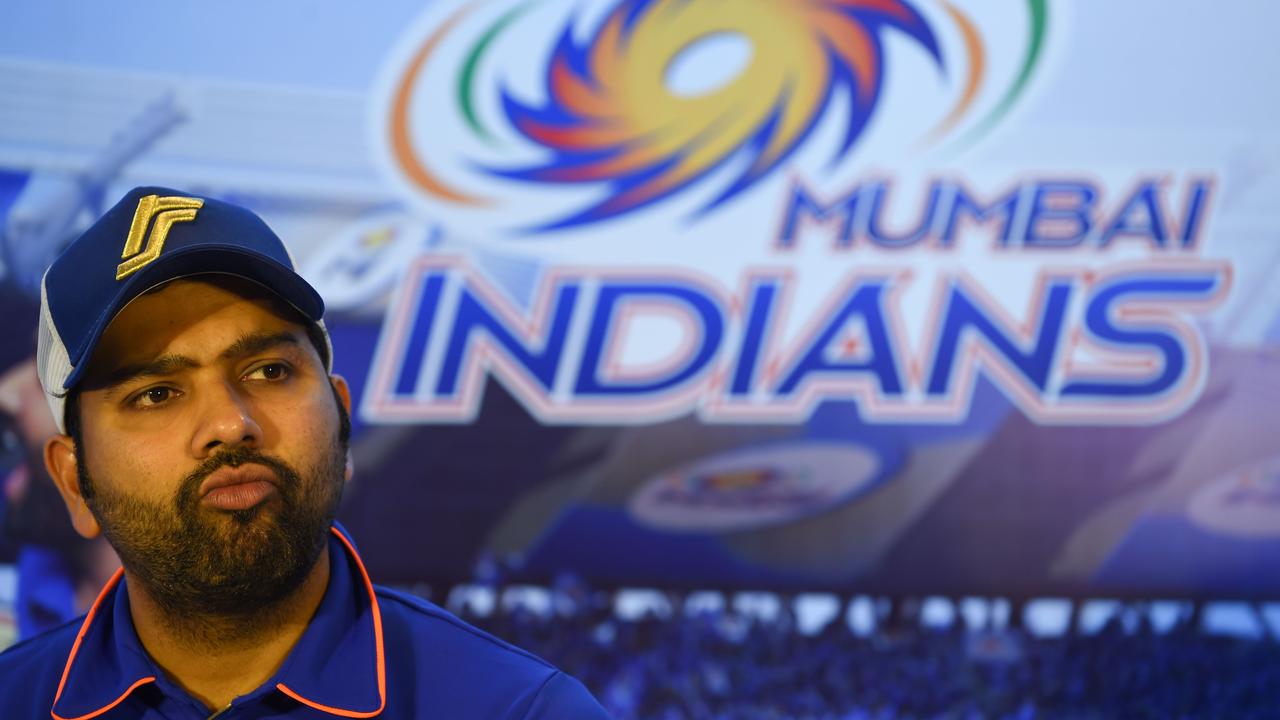It's England's Ashes to lose against pick 'n mix Aussies

A SPORTING contest commencing between a team that has won or drawn its last nine matches and a team comprehensively defeated at its last four starts would not normally portend a classic contest. So it says something for cricket's intricacies and vagaries that the Ashes of 2013 remains an intriguing prospect, pitting a known English quantity against a pick 'n mix Australian contingent of dubious reliability but considerable raw talent.
England we know. Seldom can a home team have had such a low-key prelude to a series, the limelight diffused by the roaring Lions down under and the flying Scotsman at SW19. Its last internal dramas are almost a year behind it, when Kevin Pietersen's differences with his teammates appeared momentarily irreconcilable.
Those fences give the appearance now of thorough mending, belying some of the moment's more baleful predictions, including that of Australia's then coach, Mickey Arthur, who opined that the rift might take "years to heal".
It was Arthur who ended up being on the wrong side of a more recent rift, in his case twofold - with players who objected to his strictness, and administrators who caviled at his latitude.
There was also a dawning sense that Arthur, a good coach and good man, might not be the right match for this team. His success had come with a group of experienced, knowledgeable, mentally strong South Africans; once he lost the services of first Brad Haddin, then Ricky Ponting, then Mike Hussey, he had a complement of some pretty brittle individuals, used to getting their own way.
All the same, it's unlikely Arthur would have been displaced had Darren Lehmann not been in situ, coach of Australia A on a parallel tour of England, and in favour, going back more than two decades with Cricket Australia's chief executive James Sutherland: when Lehmann relocated to Victoria in the early 90s, he played for Carlton, which shared a social club with the football team where Sutherland was CFO.
And while his was not a "job for the boys", Lehmann's appointment has been a kind of reversion to convention, most akin in its way to the appointment of Bob Simpson as Australia coach 27 years ago: a recall of the old stager, in order to reconnect with fraying traditions.
There's an irony here, in that little love was ever lost between stern Simpson and laissez-faire Lehmann, oil and water as player and coach. But it stands Lehmann in good stead as he arrives at his own system that he knows what it is like to chafe against one.
The appointment has also had the incidental benefit of subduing the outsized chorus of Australia's "not-in-my-day" ex-players, never entirely comfortable with a foreign coach, and noticeably quick to endorse their old mucka in his new job.
The contrast in perceptions between Australia's vagrant Champions Trophy team, coached by Arthur, and its refreshed Ashes squad, under Lehmann's management, could now hardly be more acute. But it is probably more a case of where we're looking.
Remember Julio Iglesias, the Eurocrooner who insisted that only his right profile be photographed? Viewed from one angle, the Australia party has always presented strength in depth.
In bouncy Pattinson, ballsy Siddle, skiddy Harris and swingy Starc and Bird, they pack a lot of heat - the most, in fact, since Australia's last Ashes series win, at home in 2006-07. Australia is far less dependent on their spearhead, Pattinson, than England is on theirs, Anderson, while fourth-line paceman Starc is a more formidable bowler than England's Onions. This may not have counted so much in a three-Test series, but it will certainly be material over a five-Test course forming half of a ten-Test cycle in which no fewer than eight matches will form part of back-to-back encounters.
Some Australian problems, moreover, remain for the present irreducible. The tour's two opening games have proved somewhere between nothing and not much. International batsmen should plunder runs from Division 2 county attacks. Phil Hughes did so in 2009 when he smashed 574 runs in five first-class innings for Middlesex, only to fall by the wayside after the Lord's Test. The step up that awaits Australia's top six is of the magnitude of a Fosbury flop.
One dilemma of their own making is proving particularly stubborn. Since 2009, Australia has sustained more run-outs than any other international team - a third more, for example, than England. Consecutive run-outs befell Michael Clarke and Ed Cowan at Worcester. Such self-inflicted wounds can leave powder burns on Test matches.
Technique may be an issue; so might the sheer variety of runners in the Australian team, some skittish, some lumbering, some aggressive, some unambitious. Whatever the case, Australia has so far declined to take the first step to addressing a problem, which is, of course, admitting you have one. Arthur never made headway on the issue; given his predisposition to accentuating the positive, Lehmann may not find it easy either.
If Lehmann and Clarke do not appear to be singing from the same songsheet quite yet, Australia is at least making affirmative noises. So are Australians more generally. The uptick in optimism is welcome. The English team in 2010-11 were struck by the sheer public negativity around their hosts. "Until I witnessed it," writes Anderson in his recent autobiography, "I would have thought it was inconceivable that the Australian public, and the country's media, could be so negative towards their own team."
This lead-in to the series has felt rather more like it, the glad embrace of Lehmann by Aussie cricket fans crystallising dissatisfaction with the regime of wellness forms, rotation policies, chaotic scheduling and constipating managerialism.
Personally, I'm not convinced that these have been problems so much as symptoms of malaise: England is a better team for being supremely well-organised, and still accommodates players of flair and spontaneity. But this has been a happy last fortnight, for we need our quotient of Pommie-bashing and Aussie-baiting, otherwise what's an Ashes for? Not so much has changed that these do not remain England's Ashes to lose. You can expect, nonetheless, Australians to make their mark - as indeed you always could.



